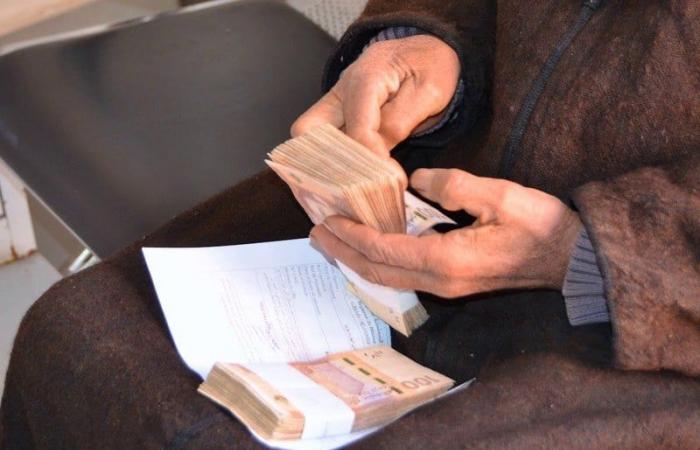The recent awareness campaign launched by the services of the General Directorate of Taxes in order to motivate obligated persons (self-employed individuals) to accelerate the settlement of their tax status with regard to their profits and incomes taxed in Morocco before the first of next January, has turned into a tool for spreading “tax phobia” and panic among the ranks of obligated persons, in the hands of pioneers and influencers in Social media sites, with the motive of achieving financial gain from “Al-Boz,” produced hundreds of videos and publications containing incorrect data about a “new tax on bank accounts!” “Anticipated seizures on accounts in 2025 without prior notice,” calls not to deposit money in banks, and other fallacies.
In light of the multiplicity of narratives, interpretations and analyzes by “Al-Boz” makers on social media regarding the process of voluntary settlement of the tax situation, the General Directorate of Taxes, which announced, along with the banks, the opening of its windows during the end of this week as an exception for the benefit of those wishing to benefit from the settlement, attempted to Interpreting the procedures and conditions of the operation, as it confirmed that it mainly concerns private individuals and their profits and incomes that are taxed in Morocco and were not declared before January 1st of the current year, while the assets are composed of Deposited in bank accounts and held in the form of bank papers, as well as movables and real estate acquired and not allocated for a professional purpose, in addition to advances included in current accounts of partners or in the account of the exploiter, or loan operations granted to others.
According to the Tax Administration, which explained the voluntary settlement process in its memorandum on the tax measures stipulated in the Finance Law of 2025, the concerned taxpayers will be forced to bear heavy taxes after December 31, after it was sufficient for them to pay a contribution amount that does not exceed only 5 percent of the value of the assets. and declared expenses, while ensuring confidentiality, as they must deposit the assets and the related declaration with the approved banking institution, or submit a declaration with the tax authorities and pay the related contribution. With movables, real estate, or advance amounts included in the partners’ current accounts, or in the exploiter’s account, and loans granted to others.
The Tax Directorate confirmed that the declared amount of assets and expenses, which were the subject of the payment of the exculpatory contribution specified at 5 percent of the value of these assets, will not be taken into account during the correction of the tax bases during the tax control of the taxable person concerned, and the evaluation of the total annual income, within the framework of a procedure. Examining the total tax status of private persons referred to in Article 216 of the General Tax Code, stressing that when making a contribution to the bank, the latter does not send any information to the tax administration that would allow identifying the holder of the declaration, To ensure the confidentiality of the process.
“taxpayer” culture
Aside from the state’s legitimate pursuit, through regulatory means such as the Finance Law, to expand the tax base and increase the efficiency of tax collection, allowing the treasury to bear and cover the costs associated with social and health protection facilities, combating inflation and drought, and developing infrastructure in preparation for hosting the “2030 World Cup,” something has come to the fore. A chronic problem related to the weakness of the “taxpayer” culture in Morocco, where taxpayers still strive to evade and evade the payment of tax dues, while Others consider fulfilling their tax obligations an indicator of citizenship and a means of contributing to societal development.
Ezzedine Mahiawi, a research professor specializing in social psychology, confirmed in a statement to Hespress that the decline in “taxpayers” in Morocco indicates a deep problem in which psychological and social factors intersect, explaining that “despite government efforts to expand the tax base and improve tax collection, There is a continuing weakness in the tax culture of individuals. One of the most prominent factors contributing to this situation is the lack of confidence in government institutions, which prompts citizens to evade taxes, as they consider that the money they pay is not invested in improving their lives or developing public services,” he said, noting that the weakness of social solidarity reflects a difference in attitudes. Regarding taxes, some consider paying tax dues a “burden” that should not be borne, while others see it as a duty and a means to contribute to building the nation.
In the same context, Mahyawi stressed “the absence of national identity in promoting the concept of tax citizenship, as paying taxes is not seen as part of collective national responsibility, because in many cases, the idea of tax evasion becomes socially acceptable, which reflects a defect in values.” Cultural support for compliance with laws. To achieve real change, the state must seek to enhance transparency and equality in the distribution of financial resources, and improve the efficiency of government performance, in order to build trust between citizens and institutions,” he said, noting the need for the authorities to intensify their efforts in media and educational awareness to clarify the direct relationship between taxes and community development, including It allows for changing social behaviors and promoting active citizenship that sees paying taxes as an essential means of contributing to societal development.
Extending the batting stick
The version of the Finance Law of 2025, approved and published in the Official Gazette recently, did not include any reference to renewing or extending the process of voluntary settlement of the tax situation, which means that this process will achieve its goals within a few days, after which the state will move to exploiting other procedures contained in the Finance Law. The new plan is to expand the taxation of various types of income. The matter relates to what was included in Article 70 bis once in the aforementioned document, under the name “Income and Other Gains,” which stipulated in its third paragraph incomes to which income tax is applied that are not included in the classifications specified in Article 22 of the financial draft, represented by “Incomes and Gains Received.” From operations aimed at obtaining a profit, which are not related to any other type of income.”
Abdel Samad Jadili, a specialist in public finance and tax policy, stated that Article 70 bis is a natural extension of the provisions of the Trade Code, which defined commercial activity and defined its nature, as the Code stressed that “any person who carries out a commercial activity on a regular and recurring basis is subject to its provisions and the provisions of the Tax Code.” This is measured by the income generated from new activities, such as e-commerce, digital advertising, and other revenues received from social networking sites, on the basis that every commercial activity that is practiced on a regular basis requires… He asked him to pay the imposed taxes, in accordance with the tax requirements in force, stressing that the inclusion of the aforementioned tax requirement in the new financial law heralds a massive surveillance campaign during the coming year among the ranks of those bound for years who remained far from the radar of the inspectors of the General Directorate of Taxes, although some of them took the initiative to organize their activities in Company form or under the “self-contractor” system.
Jadili added, in a statement to Hespress, that the process of voluntary settlement of the tax status of private individuals, by paying the value of the contribution specified at 5 percent on profits and income imposed on tax, and not declared before January 1st of the current year, does not concern all profits or incomes deposited. With banks, it relates to operations or activities that are subject to taxation but have not been declared to the tax administration, as their owners will benefit from this clearance contribution, before being subject to a heavy tax correction or review. Stressing that misunderstanding the terms and procedures of this process could lead to large withdrawals of deposits and funds from customers’ current accounts from banks, due to the fear of seizure of bank accounts by the tax administration in the event of potential tax evasion being detected, in addition to the risk of exacerbating the problem of paper circulation. Cash, in relation to exiting banking channels.






